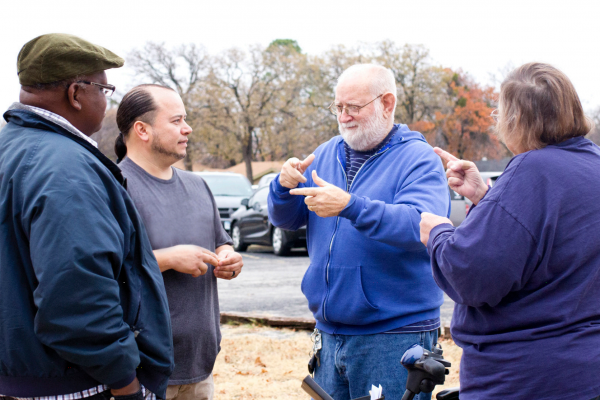
A Learner’s Heart: Lessons for Healthy Multicultural Teams
Ministering on a team comprised of people from diverse backgrounds can bring both unique blessings and challenges. Below, a Christar worker serving in the Middle East shares suggestions for building healthy multicultural teams.
Living with others is downright difficult! Of course we tend to think the difficulty lies with them and surely not with us. But the level of difficulty rises when the others are from different countries, cultures and backgrounds. Over the years of having a cross-cultural marriage, living overseas, working with all different kinds of people and doing team building for others, here are some lessons my husband and I have learned for those who work on teams that involve several different cultures:
1. Learn to adopt your host culture as your team culture.
If you have a German, an American, and a Korean family all living and working together in a particular country, then make your team culture like that of your host country (and, if possible, your team language as well). That way you are all on the same page, all acting out of a second culture that is not your own. Adopting the national culture also becomes a very natural bridge for the team when nationals are added to the body of believers.
2. Don’t commit “assumicide”: assuming that something is fact and acting on it as if it is.
This is a basic relationship principle that applies across all cultures. However, we tend to assume that when someone from a different culture does something, that somehow it is done with bad motives, due to our lack of understanding of their culture. Because assumicide is the death of team relationships, we need to practice clearing up misunderstandings and assuming the best of others.
3. Be aware that different cultures will use and emphasize different Bible verses for peacemaking.
An American will go directly to Matthew 18, when it comes to confronting conflict. A Middle Easterner will use more of the “one another” passages or even I Corinthians 6, in which one will be appointed as an arbitrator to judge the matter, while an Asian might use Proverbs 19:11: overlooking a matter in order to prevent shame.
4. Be a learner of each other’s cultures as relationship killers are different in each culture.
Ask what will hurt or even ruin a relationship for your Swedish or Brazilian co-workers. Just as we are learners of our host culture, we need to love one another well by becoming a curious learner our teammates’ cultures.
5. Remember that people are people.
So even though we all grew up in different families, in different cultures and have different personalities, we are in essence all the same. We all laugh, we all cry and we all desire to be loved and accepted. It comes down to the basics of our faith—to love God and to love each other. We do that by accepting one another as we have been accepted by God in Christ, by humbly accepting we might be the difficult one, by being quick to offer both confession and forgiveness and by going the extra mile to walk in our teammates’ cultural sandals.









































_1724957011_600x400.png)
